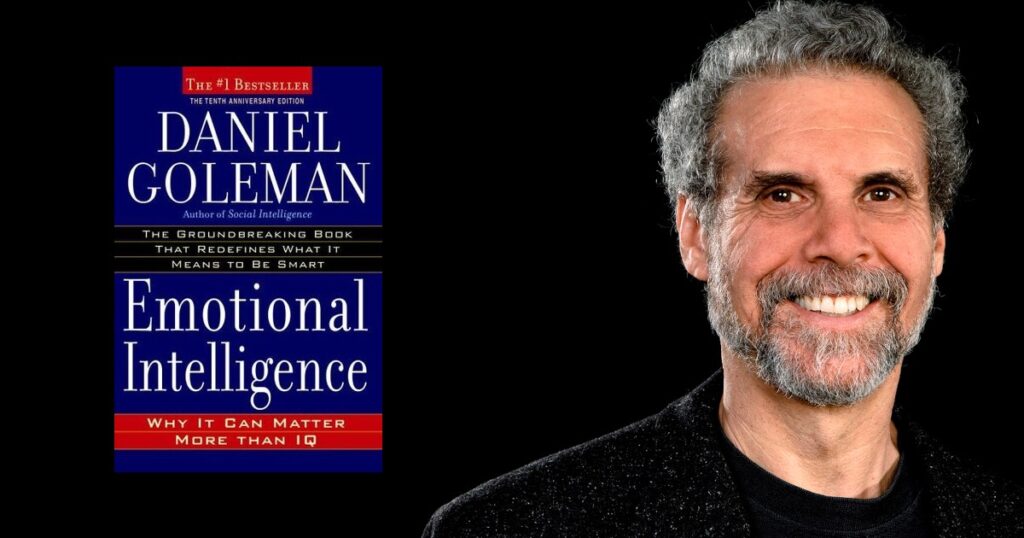“Leadership is not about being in charge. It is about taking care of those in your charge.” – Simon Sinek.
Leadership isn’t just about making tough calls or setting a vision, it’s about understanding the heartbeat of your team. A study by Gallup found that up to 70% of an employee’s engagement is influenced by the quality of their leadership.
However, many leaders struggle to recognize their own emotions at the moment, which can create challenges in effectively managing their teams and maintaining a positive work environment.
Let’s explore why emotional intelligence is important, what’s the role of emotional intelligence in leadership, and how partnering with an executive coach can take your skills to the next level.
What is Emotional Intelligence?

Emotional intelligence (EI) is the ability to recognize, understand, manage, and utilize emotions effectively in oneself and others. Psychologist Daniel Goleman, who popularized the concept, identifies five key components of EI:
- Self-Awareness
- Self-Regulation
- Motivation
- Empathy
- Social Skills
As Goleman explains, “Leadership is not domination, but the art of persuading people to work toward a common goal.”
The Leadership Impact
1. Builds Trust and Credibility
Leaders who manage their emotions earn the trust and respect of their teams. When employees see a leader who is calm, authentic, and approachable, they feel safe and valued.
2. Enhances Communication and Team Collaboration
Emotional intelligence allows leaders to connect with their teams on a deeper level, ensuring clearer communication and stronger collaboration. Teams with emotionally intelligent leaders are 20% more productive. For example, Jacinda Ardern, New Zealand’s former Prime Minister, used her empathetic leadership style to unite the country during crises, demonstrating how emotional intelligence can create harmony and resilience.
3. Improves Decision-Making Under Pressure
Leaders with high EI can manage stress, think clearly, and make sound decisions even in high-pressure situations. Howard Schultz, former Starbucks CEO, often credits his ability to understand and connect with people as the foundation for making key business decisions that revitalized the company.
Ready to become the emotionally intelligent leader your team needs? Reach out to Dr. Petra Frese in Allentown, Pennsylvania. As one of the best executive coaches in the USA, she will help you!
The 4 Core Components of Emotional Intelligence in Leadership
Emotional intelligence is built on four core components that are essential for effective leadership.
1. Self-Awareness
Self-awareness is the ability to recognize and understand your own emotions and their impact on your decisions and actions.
Self-aware leaders can identify emotional triggers and respond thoughtfully instead of reacting impulsively. This builds trust and credibility with their teams. For example, A self-aware manager who recognizes their frustration during a tough meeting can pause, reflect, and respond constructively, rather than letting emotions dictate their tone.
2. Self-Management
Self-management is about regulating emotions to maintain focus, composure, and productivity, especially under pressure.
Leaders who can manage their emotions are better equipped to handle stress and inspire confidence in their teams.
3. Social Awareness
Social awareness involves understanding the emotions and needs of others, as well as recognizing emotional cues within a group.
Empathetic leaders can connect with their teams, fostering better communication and collaboration.
4. Relationship Management
Relationship management is the ability to build and maintain strong, positive connections, communicate clearly, and manage conflict effectively.
Leaders who excel in relationship management inspire loyalty and motivate their teams to achieve shared goals.
Transform the way you lead with expert guidance from Dr. Petra Frese, a trusted executive coach in Pennsylvania, USA. Connect today!
The Role of Executive Coaching in Developing Emotional Intelligence

Executive coaching is a powerful tool for leaders looking to enhance their emotional intelligence (EI).
How Coaching Works
1. Safe Space for Self-Reflection and Feedback
Coaching creates an environment where leaders can openly explore their emotions, behaviors, and challenges without fear of judgment.
2. Identifying Emotional Blind Spots
Coaches help leaders recognize behaviors and triggers they may not be aware of, which can hinder their growth.
3. Reframing Limiting Beliefs
Through targeted exercises, coaching helps leaders replace self-doubt or negative thinking with empowering beliefs.
4. Personalized Growth
Executive coaching tailors strategies to each leader’s unique challenges, making the process practical and sustainable.
Tools Coaches Use to Enhance EI
- Mindfulness Practices for Emotional Regulation
- Cognitive Reframing to Overcome Emotional Triggers
- Role-Playing Exercises to Improve Empathy and Communication
Also read: The Neuro-Science of Coaching
Benefits of Emotional Intelligence Through Coaching

1. Improved Decision-Making
Stress and pressure are part of leadership, but they often cloud judgment. Executive coaching equips leaders with strategies to stay composed, enabling clear and confident decision-making.
2. Stronger Teams
Leadership is about connection. Emotional intelligence, enhanced through coaching, allows leaders to build trust, inspire collaboration, and boost team morale. Research indicates that 73% of individuals who received coaching reported improved relationships with their peers and direct reports, leading to more cohesive and productive teams.
3. Conflict Resolution
Disagreements are inevitable in any workplace. Emotionally intelligent leaders learn to approach conflicts with empathy and clarity, ensuring resolutions benefit all parties.
4. Adaptability
The ability to pivot and adapt is critical in today’s fast-changing business landscape. Coaching helps leaders build resilience and embrace change with confidence.
In Summary
Emotional intelligence is the cornerstone of exceptional leadership, enabling you to connect with your team, make better decisions, and adapt with confidence. It’s not just a skill—it’s a game-changer.
If you want to be a leader with strong emotional intelligence, consider working with Dr. Petra Frese, recognized as one of the best executive coaches in the USA. With her unique approach blending neuroscience and coaching, Dr. Frese can guide you toward becoming the emotionally intelligent leader your organization needs.

